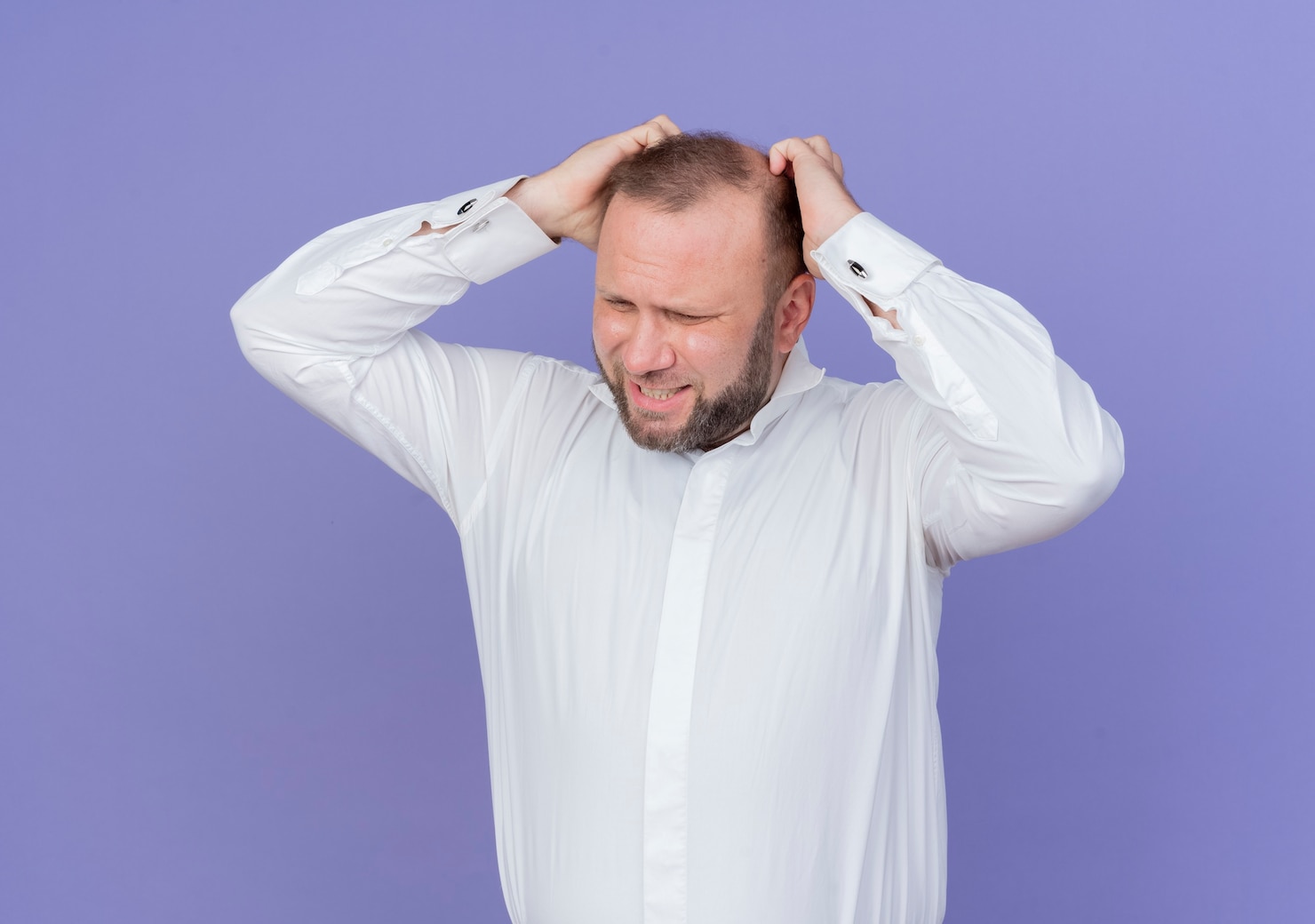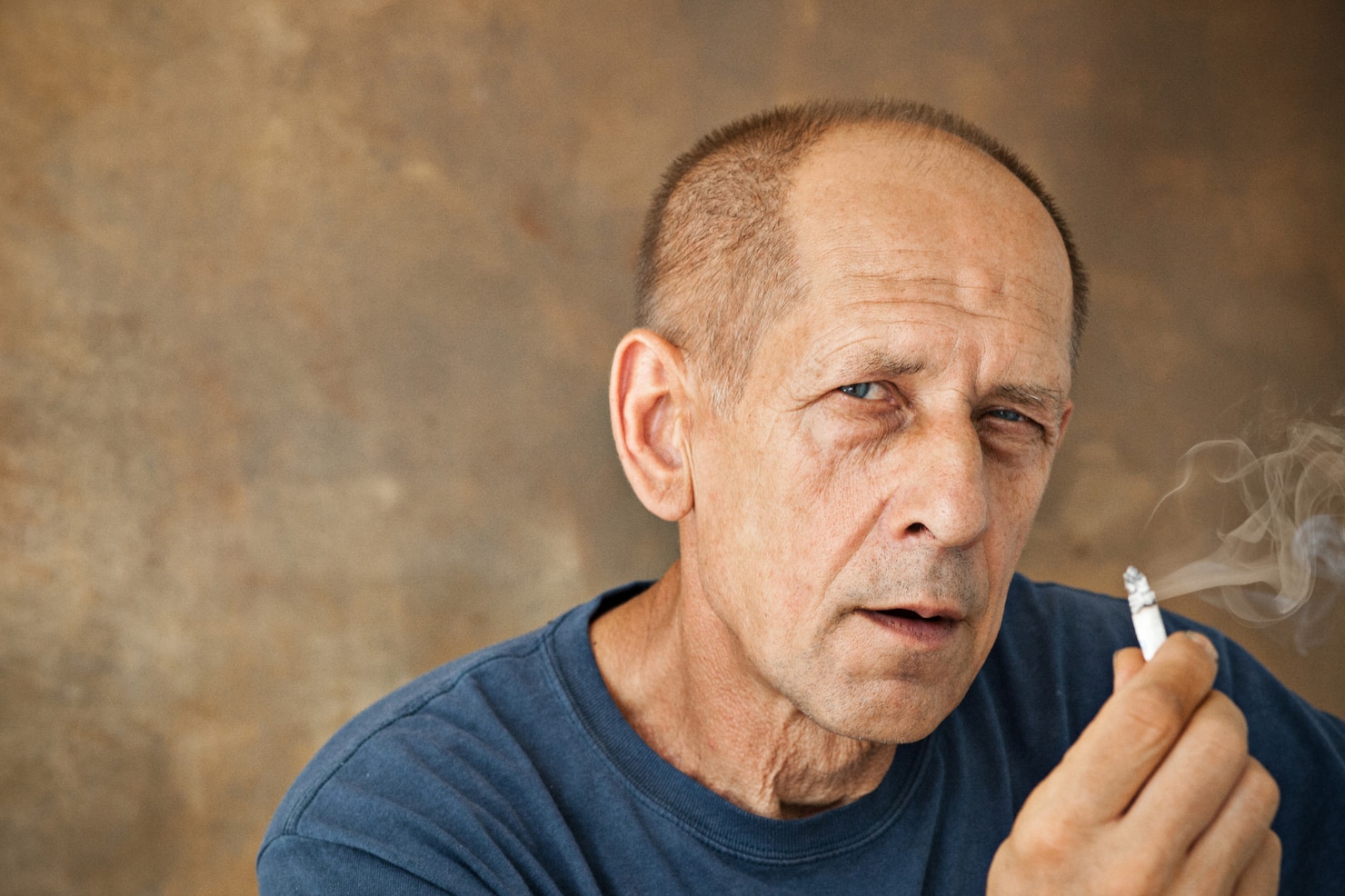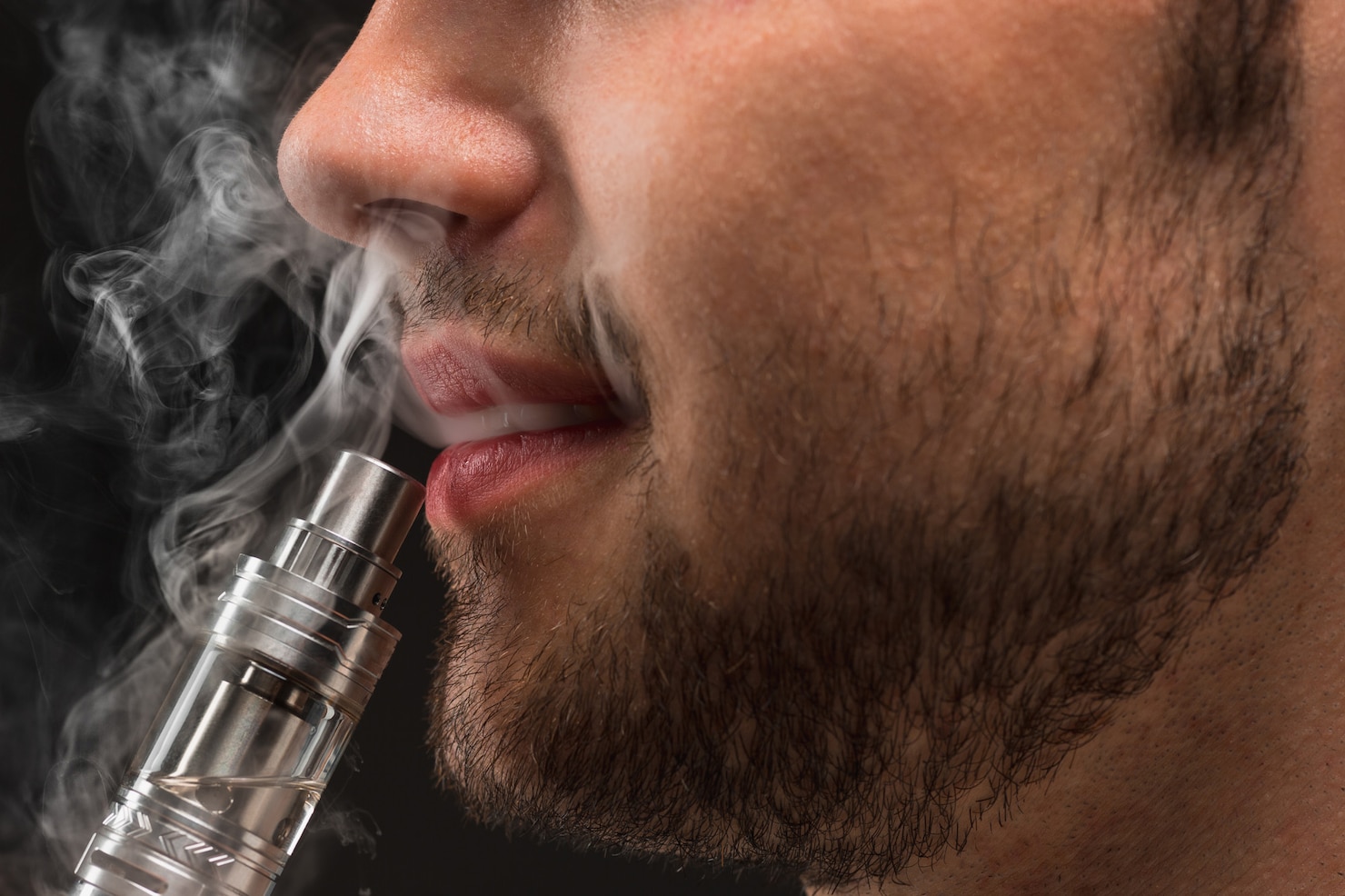
Hair loss can be a distressing experience, impacting one's self-confidence and overall well-being. In this article, we will explore the fascinating connection between testosterone and hair loss, shedding light on how this hormone affects hair follicles and its correlation with male pattern baldness. Additionally, we will discuss various factors that influence hair loss, including genetic predisposition and other contributing factors that go beyond testosterone.
With that, you won’t have to endlessly search for answers to “does testosterone cause hair loss?” online.
So rather than waste time looking up terms like “does high testosterone cause hair loss?” “does low testosterone cause hair loss?” and “testosterone and hair loss” online, read on for more insightful information instead.
Testosterone and Hair Loss
How testosterone affects hair follicles
When it comes to the intricate dance between testosterone and hair follicles, the dynamics are fascinatingly complex. Testosterone, that mighty hormone coursing through your veins, wields a profound influence on your follicular fate. Picture this: nestled within your hair follicles lie miniature factory workers known as androgen receptors. These receptors, oh so receptive to the charms of testosterone, eagerly await its arrival like starstruck fans.
Once testosterone arrives at the follicular scene, it undergoes a transformation into a more potent form called dihydrotestosterone (DHT). DHT is an androgen that stimulates the development of male characteristics. An enzyme called 5 -alpha reductase converts testosterone to DHT. An adult male converts about 10% of testosterone (which is the main androgen) into DHT every day.
This DHT, wielding a newfound power, stealthily binds to those previously mentioned androgen receptors, setting off a series of events that send shockwaves through the hair follicles. These shockwaves disrupt the natural growth cycle, causing a gradual shrinking of the follicles and a subsequent shortening of the hair's lifespan.
But DHT doesn't stop there; it also has the audacity to impede the delivery of essential nutrients and oxygen to the hair follicles, effectively cutting off their lifeblood. Without this vital nourishment, the follicles wither like neglected plants in a barren garden.
When there is more testosterone, the level of DHT is also naturally much higher. Therefore, if a person is assigned male at birth, they have a higher testosterone level and therefore DHT levels are also higher, giving more male characteristics. DHT is responsible for male pattern hair loss more than testosterone (which plays a significant role in maintaining male physiology in adulthood).
The following health conditions are associated with high levels of DHT;
Benign prostatic hyperplasia
Prostate cancer
Poly cystic ovarian syndrome (PCOS)
Androgenic alopecia
High levels of DHT can shrink the hair follicles and shorten the growth cycle of hair resulting in male pattern hair loss.
When there is a deficiency of the enzyme 5- alpha-reductase which does the conversion, DHT levels will be lower. Also if there are low testosterone levels (seen in male hypogonadism) the DHT levels will also be lower. Having a low DHT level will protect a person from male pattern hair loss.
Key Takeaway:
Testosterone, when converted to dihydrotestosterone (DHT), can disrupt the natural growth cycle of hair follicles and impede their nourishment, leading to hair loss. In individuals genetically predisposed to male pattern baldness, the follicles become hypersensitive to DHT, resulting in progressively thinner and shorter hair strands. Understanding this relationship empowers you to take control of your hair health and combat the challenges posed by testosterone-related hair loss.Factors Influencing Hair Loss

Image Source: FreePik
When it comes to the intricate puzzle of hair loss, numerous factors come into play, shaping the destiny of your beloved locks. Let's delve into two significant influencers that can tip the scales in favor of hair loss in men.
Genetic predisposition and family history
Your genetic makeup and family history play a substantial role in determining your susceptibility to hair loss. If your ancestors had a fondness for rocking the bald look, chances are you've inherited their genetic predisposition.
Within your DNA lies a blueprint that determines how sensitive your hair follicles are to the charms of dihydrotestosterone (DHT), that mischievous hormone we explored earlier. If your follicles are genetically prone to be hypersensitive to DHT, they are more likely to succumb to the gradual shrinking and weakening that characterizes male pattern baldness.
Other contributing factors to hair loss in men
While genetics may hold a prominent seat at the hair loss table, they are not the sole arbiters of your follicular fate. Other factors can exacerbate or accelerate the process. Lifestyle choices, such as smoking, excessive stress levels, and poor nutrition, can take their toll on your hair health.
Additionally, certain medical conditions like hypothyroidism, hormonal imbalances, and side effects of certain medications like beta blockers, antidepressants, and blood thinners can also contribute to hair loss. Conditions like alopecia areata, scalp infections, Trichotillomania (pulling out hair forcefully) and thyroid disorders may lead to temporary or permanent hair loss if left unaddressed. It's essential to consult with a healthcare professional to identify and manage any underlying issues that may be contributing to your hair loss.
Key Takeaway:
Genetic predisposition and family history, coupled with lifestyle choices and medical conditions, are significant factors that contribute to hair loss in men. Understanding your genetic heritage and addressing other potential influencers can empower you to make informed decisions and take proactive measures to mitigate hair loss.Hair Care Tips for Men
When it comes to hair care, men often find themselves in uncharted territory. However, fear not, for with these expert tips, you'll be well on your way to maintaining a healthy scalp and mastering effective grooming practices. Let's dive in!
Maintaining a healthy scalp
A healthy scalp is the foundation of luscious locks, and it requires proper care and attention. First and foremost, keep your scalp clean by washing your hair regularly with a gentle shampoo. Look for products that are specifically formulated for men, as they are designed to address the unique needs of male scalps.
In addition to regular cleansing, it's essential to exfoliate your scalp to remove any buildup of dead skin cells and excess oil. You can do this by using a scalp scrub or gently massaging your scalp with your fingertips while shampooing. This will stimulate blood circulation and promote a healthier environment for hair growth.
Furthermore, be mindful of your diet and lifestyle. A balanced diet rich in nutrients, such as vitamins A, C, and E, biotin, zinc, and iron as well as omega-3 fatty acids, can contribute to a healthier scalp and hair. Stay hydrated and minimize stress levels, as these factors can also impact the condition of your scalp.
Effective grooming practices for men's hair
Now that you've laid the foundation for a healthy scalp, it's time to focus on grooming practices that will elevate your hair game. Start by choosing a hairstyle that suits your face shape and personal style. Consult with a skilled barber or hairstylist who can guide you in selecting the perfect cut that will enhance your features.
Once you have your desired hairstyle, invest in quality hair care products tailored to your hair type. Whether you have short, medium, or long hair, using the right shampoo, conditioner, and styling products will make a noticeable difference. Experiment with different textures and finishes to find the perfect product combination for your desired look. Avoid using too much heat styling or products with harsh chemicals.
Additionally, incorporate regular trimming into your hair care routine. This will help maintain the shape and manage any split ends, ensuring your hair always looks polished and well-maintained. A visit to the barber every few weeks is all it takes to keep your mane in top shape.
Key Takeaway:
Nurture your scalp with regular cleansing and exfoliation, maintain a balanced diet and lifestyle, choose a flattering hairstyle, use quality hair care products, and incorporate regular trimming into your routine for impeccable hair care.Products to Consider

Image Source: FreePik
When it comes to achieving optimal hair health and promoting hair growth, incorporating the right products into your haircare routine can make a world of difference. Let's explore some essential products that are worth considering on your journey to luscious locks.
Shampoos and conditioners for hair health
The foundation of any haircare routine lies in choosing the right shampoo and conditioner to keep your hair healthy and nourished. Look for products that are specifically formulated to address your hair type and concerns. Whether you have a dry, oily, or sensitive scalp, there are options available to cater to your specific needs.
For men seeking to enhance hair health, consider shampoos and conditioners that contain ingredients like biotin, keratin, or essential oils known for their revitalizing properties. These ingredients can strengthen your hair, improve its texture, and promote overall scalp health.
Remember, a little goes a long way when it comes to shampooing. Use a dime-sized amount of the product and massage it into your scalp to effectively cleanse and stimulate blood circulation. Follow up with a nourishing conditioner, focusing on the lengths and ends of your hair to keep it moisturized and manageable.
Topical treatments and supplements for hair growth
If you're looking to promote hair growth, there are topical treatments and supplements that can aid in the process. Consider incorporating minoxidil (which can be bought over the counter), a widely used topical treatment, into your routine. It has been proven to stimulate hair growth and slow down hair loss in men.
In addition to topical treatments, certain supplements can provide your body with essential nutrients to support healthy hair growth. Look for supplements that contain biotin, vitamin D, and zinc, as these nutrients are known to contribute to hair health and growth.
However, it's important to note that individual results may vary, and consulting with a healthcare professional or a dermatologist is advisable before starting any new treatment or supplement regimen.
Key Takeaway:
Choose shampoos and conditioners tailored to your hair type and concerns to maintain hair health. Consider topical treatments like minoxidil and supplements containing essential nutrients to support hair growth. Remember to consult with a healthcare professional before starting any new treatment or supplement regimen.Conclusion
The relationship between testosterone and hair loss is a complex one. Testosterone, when converted to dihydrotestosterone (DHT), can disrupt the natural growth cycle of hair follicles and impede their nourishment, leading to hair loss. This process is especially pronounced in individuals genetically predisposed to male pattern baldness, where the follicles become hypersensitive to DHT.
However, understanding this connection empowers you to take control of your hair health and combat the challenges posed by testosterone-related hair loss.
Genetic predisposition and family history play a significant role in determining hair loss susceptibility. Knowing your genetic heritage can help you anticipate and address the challenges ahead. Additionally, lifestyle choices and other medical conditions can exacerbate hair loss. Factors such as smoking, excessive stress levels, poor nutrition, and certain medical conditions can contribute to hair loss.
By understanding these additional factors and addressing them accordingly, you can take proactive steps to minimize their impact on your hair health.




